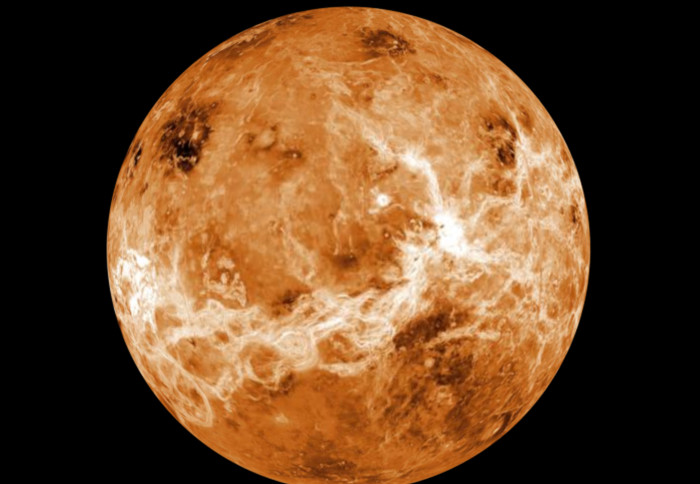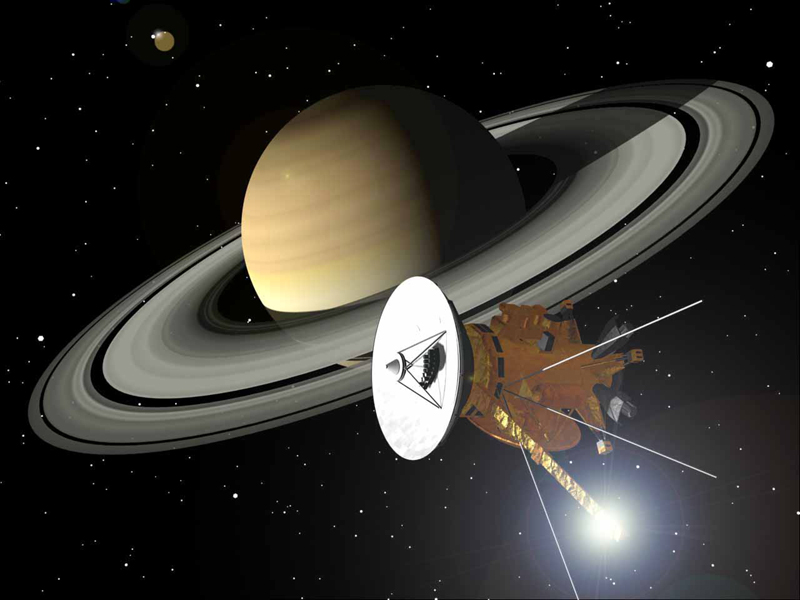Planets of the Solar System - Quiz

How well do you know the planets of the Solar System? Here's a beginner's quiz for you to test your knowledge.
Complete each statement with the name of the planet that it's describing. Then you can check your answers, and also find out a bit more about the planet.
What do you know? Have a go.
Quiz: The planets of the Solar System
Answers and notes
1. The biggest planet is Jupiter.
If there were a planet-sized weighing scale, Jupiter would weigh more than twice as much as all the other planets put together. Its moon Ganymede is also the biggest moon in the Solar System, but it's only slightly bigger than Saturn's moon Titan.
2. The smallest planet is Mercury.
Mercury is smaller than Ganymede or Titan. Astronomers think it was originally bigger, but that in the early days of the Solar System a collision stripped away its outer layer.
3. The farthest planet from the Sun is Neptune.
Earth is 150 million kilometers (93 million miles) from the Sun. We call that distance an astronomical unit (AU). Neptune is 30 AU from the Sun, thirty times as far away as we are.
4. The planet named for the Roman goddess of love and beauty is Venus.
Venus is our nearest planetary neighbor and is covered in reflective clouds. This makes it appear like a bright star in either the morning or evening sky. Venus is sometimes extra bright – when that happens, there's an increase in the number of people reporting that they've seen a UFO.
5. Mars is also known as the red planet.
Mars was the Roman god of war, but its reddish color isn't blood. What's on the Martian surface is iron oxide – rust.
6. The planet closest to the Sun is Mercury.
Astronomers didn't know much about Mercury until they sent space probes to study it. The planet is so close to the Sun that the Sun's glare makes it hard to see from Earth.
7. William Herschel discovered the planet Uranus.
All of the planets nearer to the Sun than Uranus had been known since prehistoric times. Herschel discovered the new planet in 1781 and wanted to name it Georgium Sidus (George's Star) after George III of England. That name didn't catch on, but eventually Uranus did. Uranus was a Roman sky god, the father of Saturn.
8. The only two planets without moons are Venus and Mercury.
9. The planet with the brightest rings is Saturn.
Four planets in the Solar System have rings: Saturn, Jupiter, Uranus and Neptune. Saturn's ring system is bright and spectacular, but the rings of the other planets are dark. They weren't discovered until the second half of the twentieth century.
10. The planet named for the Roman sea god is Neptune.
German astronomer Johann Galle discovered Neptune in 1846, using the mathematical prediction of French mathematician Urbain LeVerrier. There was some debate about what to name the new planet, but following the theme of classical Roman gods, “Neptune” prevailed.
How did you do?
Did you learn something from this quiz or did you know most of the answers already? Either way, well done! Click on “Join the discussion” to comment, see what other people say, or find out what's new.
The links below this article will help you find out more about the planets of the Solar System.
Complete each statement with the name of the planet that it's describing. Then you can check your answers, and also find out a bit more about the planet.
What do you know? Have a go.
Quiz: The planets of the Solar System
- The biggest planet is - - - .
- The smallest planet is - - - .
- The farthest planet from the Sun is - - - .
- The planet named for the Roman goddess of love and beauty is - - - .
- - - - is also known as the red planet.
- The planet closest to the Sun is - - - .
- William Herschel discovered the planet - - - .
- The only two planets without moons are - - - and - - - .
- The planet with the brightest rings is - - - .
- The planet named for the Roman sea god is - - - .
Answers and notes
1. The biggest planet is Jupiter.
If there were a planet-sized weighing scale, Jupiter would weigh more than twice as much as all the other planets put together. Its moon Ganymede is also the biggest moon in the Solar System, but it's only slightly bigger than Saturn's moon Titan.
2. The smallest planet is Mercury.
Mercury is smaller than Ganymede or Titan. Astronomers think it was originally bigger, but that in the early days of the Solar System a collision stripped away its outer layer.
3. The farthest planet from the Sun is Neptune.
Earth is 150 million kilometers (93 million miles) from the Sun. We call that distance an astronomical unit (AU). Neptune is 30 AU from the Sun, thirty times as far away as we are.
4. The planet named for the Roman goddess of love and beauty is Venus.
Venus is our nearest planetary neighbor and is covered in reflective clouds. This makes it appear like a bright star in either the morning or evening sky. Venus is sometimes extra bright – when that happens, there's an increase in the number of people reporting that they've seen a UFO.
5. Mars is also known as the red planet.
Mars was the Roman god of war, but its reddish color isn't blood. What's on the Martian surface is iron oxide – rust.
6. The planet closest to the Sun is Mercury.
Astronomers didn't know much about Mercury until they sent space probes to study it. The planet is so close to the Sun that the Sun's glare makes it hard to see from Earth.
7. William Herschel discovered the planet Uranus.
All of the planets nearer to the Sun than Uranus had been known since prehistoric times. Herschel discovered the new planet in 1781 and wanted to name it Georgium Sidus (George's Star) after George III of England. That name didn't catch on, but eventually Uranus did. Uranus was a Roman sky god, the father of Saturn.
8. The only two planets without moons are Venus and Mercury.
9. The planet with the brightest rings is Saturn.
Four planets in the Solar System have rings: Saturn, Jupiter, Uranus and Neptune. Saturn's ring system is bright and spectacular, but the rings of the other planets are dark. They weren't discovered until the second half of the twentieth century.
10. The planet named for the Roman sea god is Neptune.
German astronomer Johann Galle discovered Neptune in 1846, using the mathematical prediction of French mathematician Urbain LeVerrier. There was some debate about what to name the new planet, but following the theme of classical Roman gods, “Neptune” prevailed.
How did you do?
Did you learn something from this quiz or did you know most of the answers already? Either way, well done! Click on “Join the discussion” to comment, see what other people say, or find out what's new.
The links below this article will help you find out more about the planets of the Solar System.
You Should Also Read:
Planets and Moons
Solar System – Our Neighborhood
How to Tell a Planet from a UFO

Related Articles
Editor's Picks Articles
Top Ten Articles
Previous Features
Site Map
Content copyright © 2023 by Mona Evans. All rights reserved.
This content was written by Mona Evans. If you wish to use this content in any manner, you need written permission. Contact Mona Evans for details.







